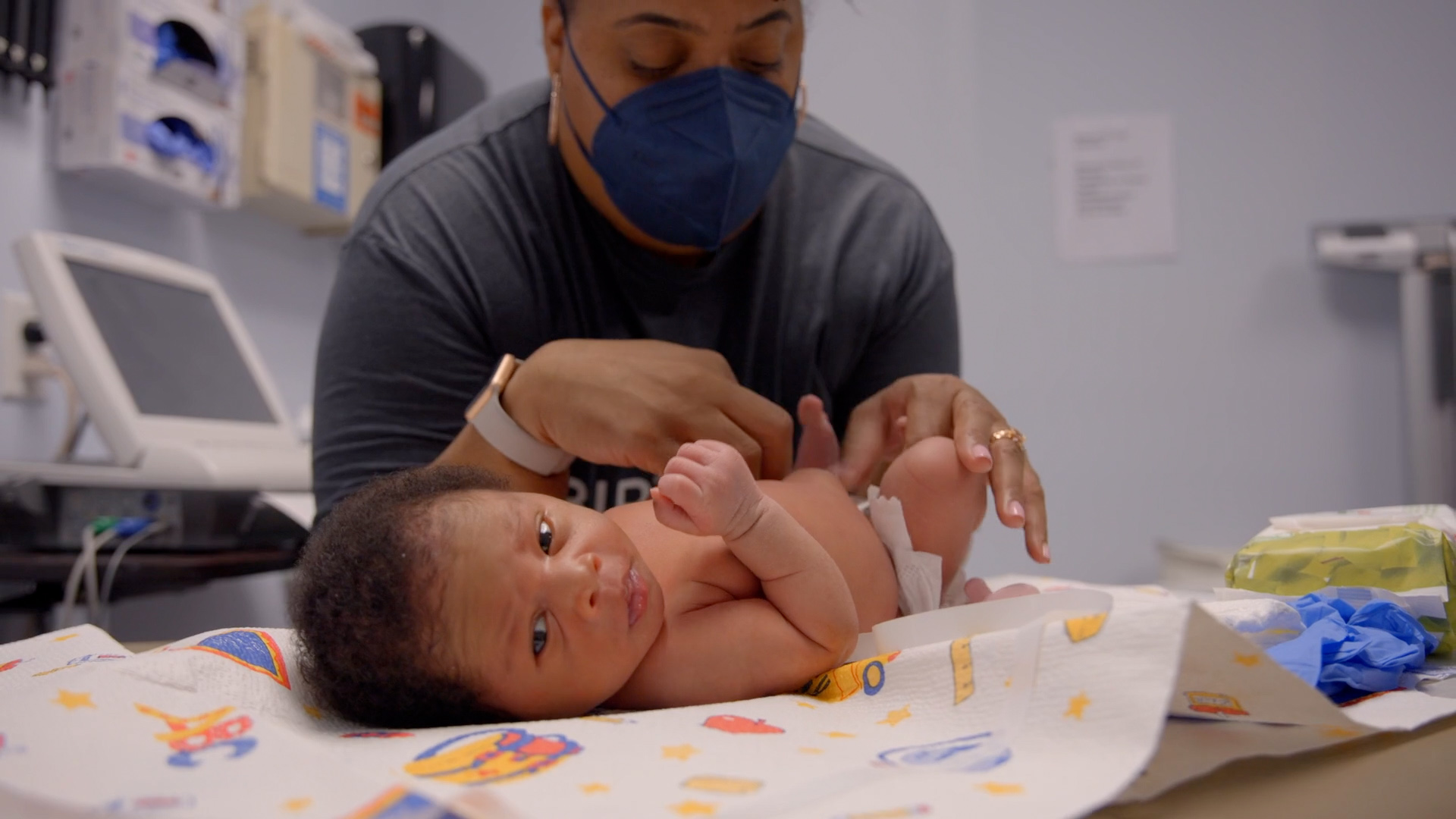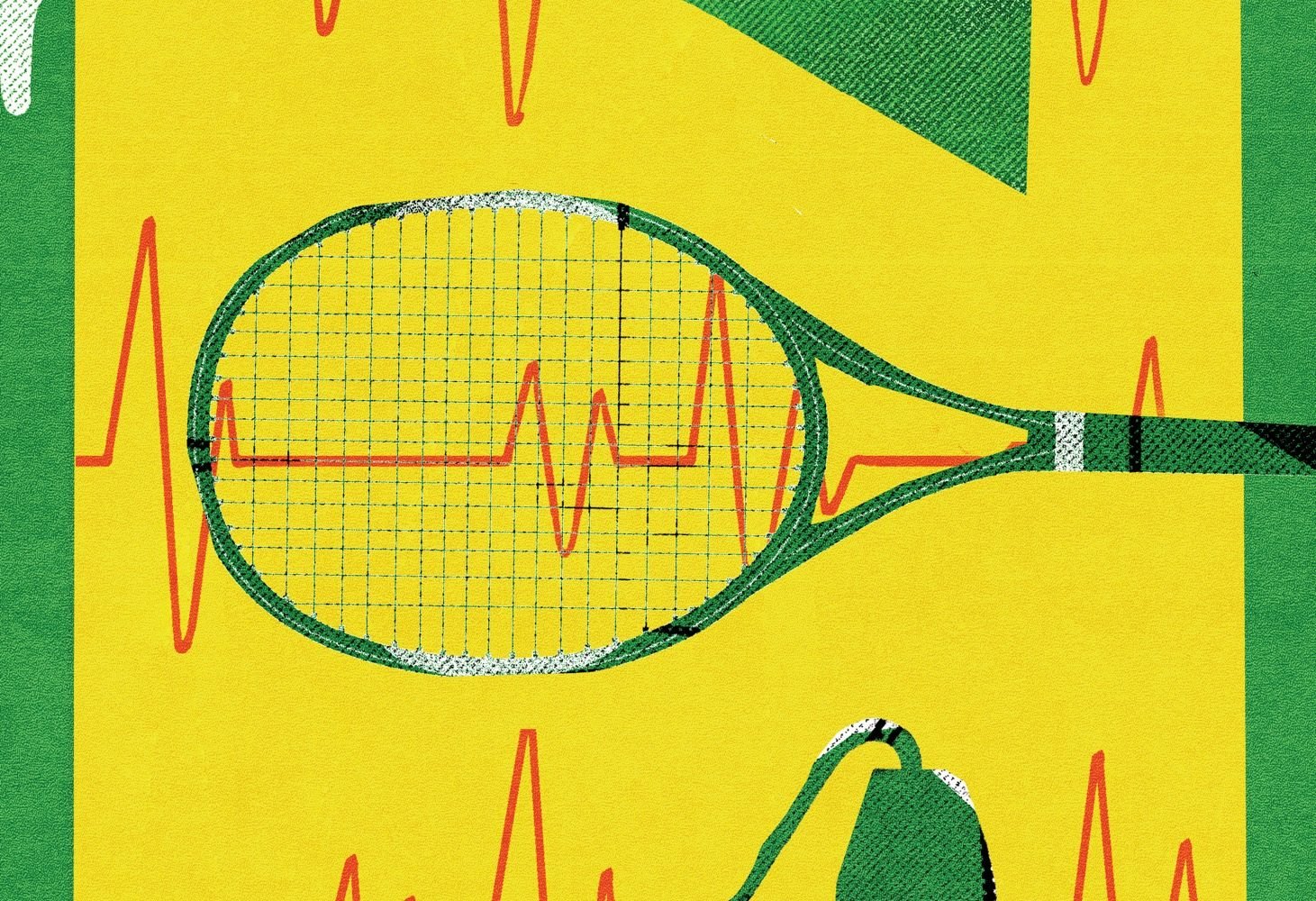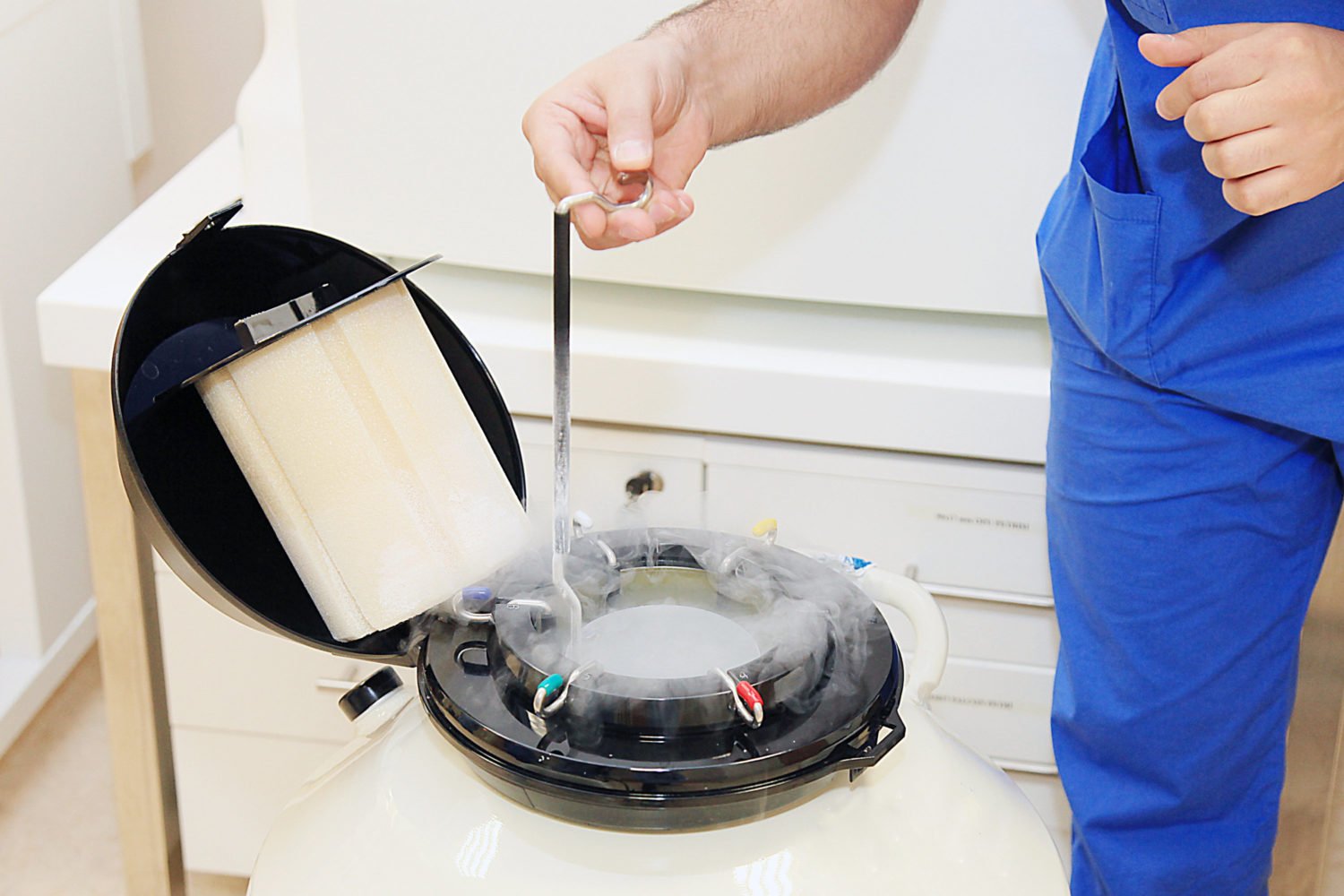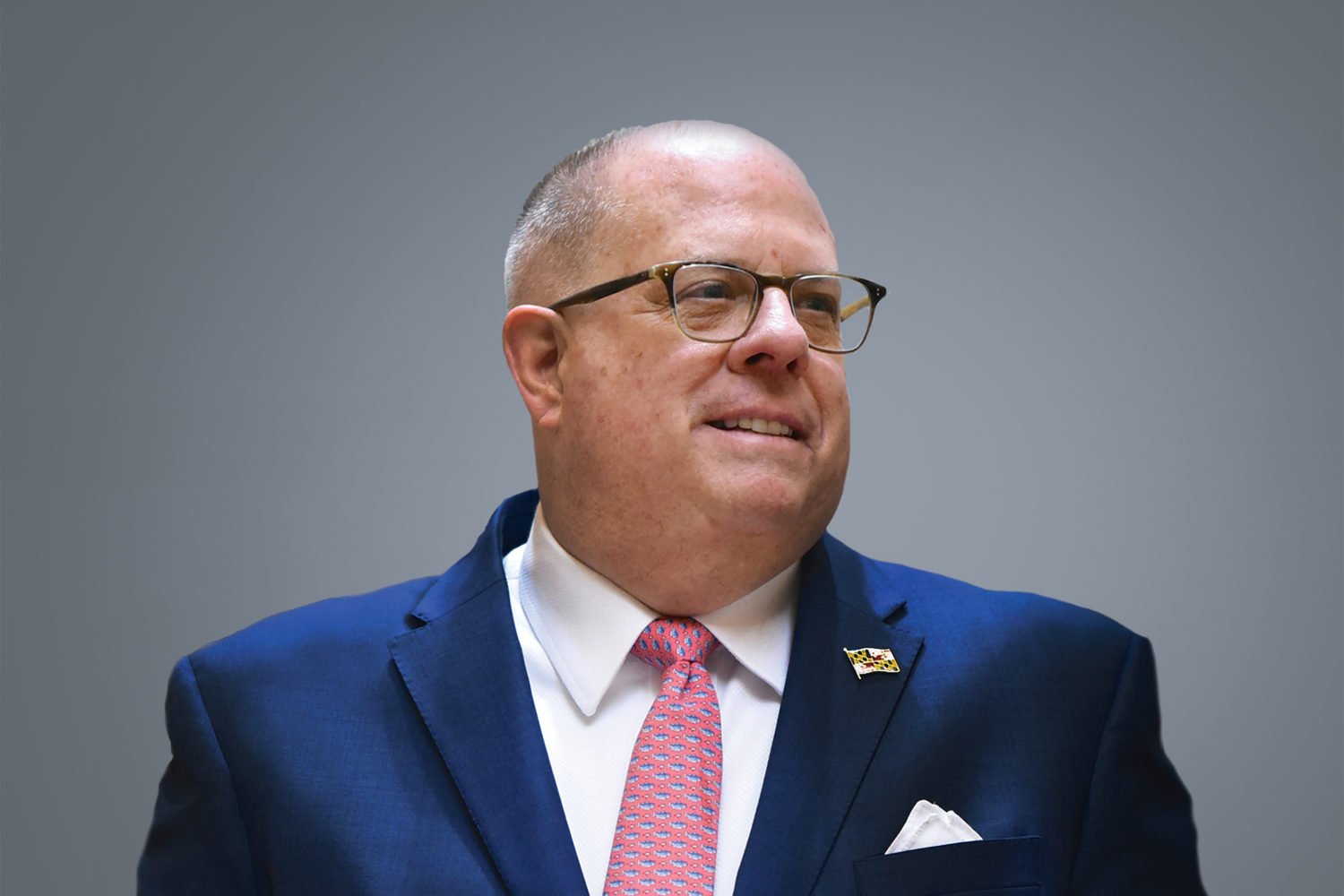Black women in the U.S. are over three times more likely to die from pregnancy-related complications than white women. In DC, that number is even higher. Ebony Marcelle is working to change those dire statistics.
Marcelle is the director of midwifery at Community of Hope, a nonprofit that provides prenatal and postpartum care to expectant mothers, including comfortable delivery rooms and 24-hour care from nurses and midwives. She studied nursing at Georgetown University and midwifery at Thomas Jefferson University in Philadelphia, where she graduated in 2007. She joined Community of Hope in 2015.
Marcelle grew up in Orange County, California, and required public assistance to receive health care. She remembers doctors and staff who treated her badly because she was poor. “It made me really, really want to be intentional on how I’m caring for folks,” she says.
Community of Hope’s system is built to ease those inequities. People in the community Marcelle serves, she says, often don’t have access to transportation or lack the household support to help them make it to the clinic. So there’s no penalty for patients who arrive late for prenatal and pediatric appointments, for example—they receive care when they arrive, no questions asked. The staff, Marcelle says, understands that patients often endure high stress and can provide emotional and mental health support on the spot, rather than refer them to therapists who might not have openings for weeks. “It’s just great to be like, ‘We can handle things right now,'” she says.
Perhaps the most important component of Community of Hope’s care is that Marcelle has cultivated a staff of Black midwives, people who understand the historical, institutional, racist, and structural causes behind the statistics. “People want to see people that look like them take care of them,” she says.
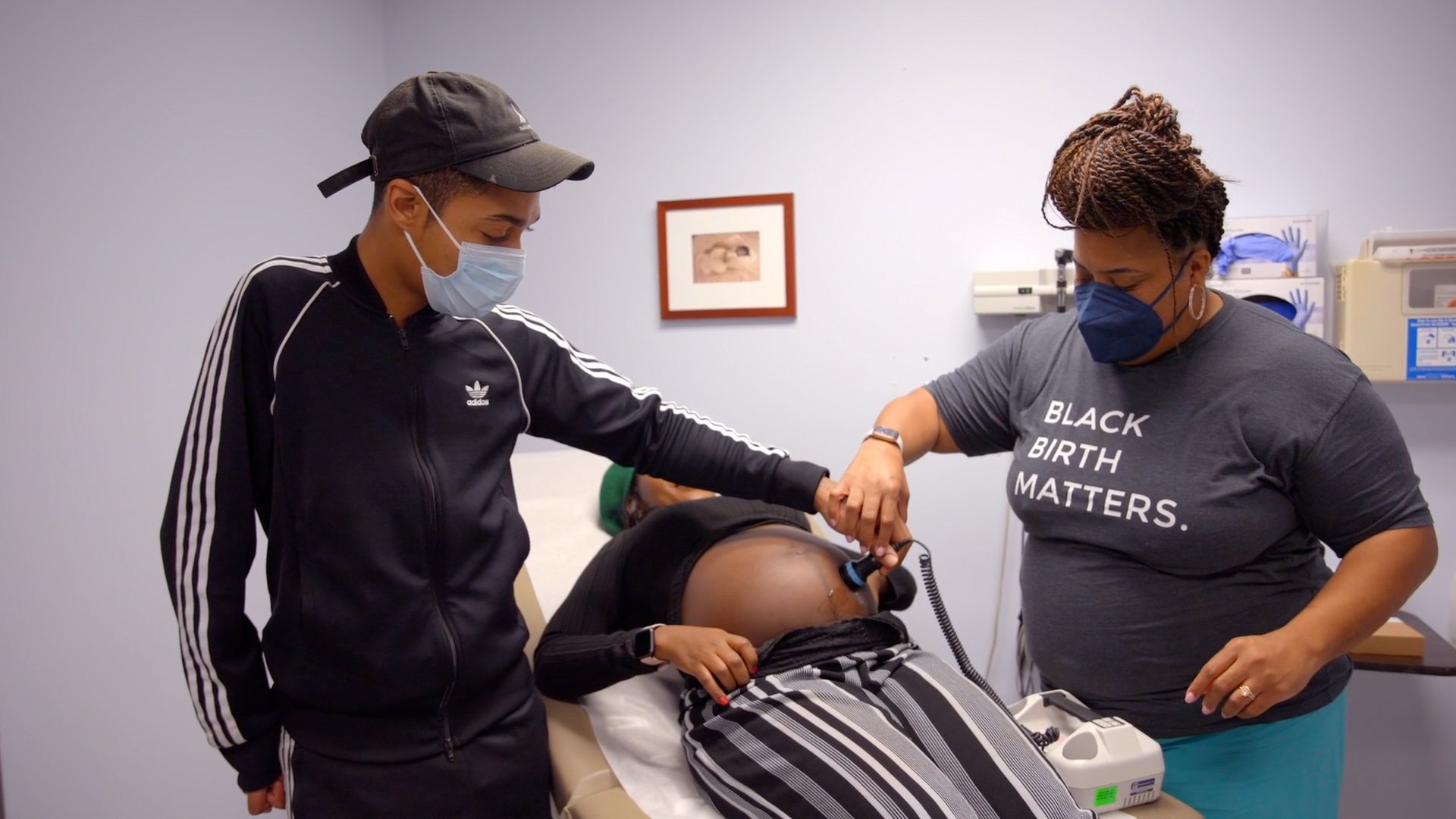
Marcelle is featured in the new PBS documentary Birthing Justice, which portrays maternity wards as battlegrounds for many Black women in the U.S. Some Black parents from across the socioeconomic spectrum fear going to the hospital to have children, because they doubt doctors will take their concerns seriously, she says. “We have to acknowledge the general distrust and generational distrust with a lot of our systems—health care, law enforcement, government. Of course going to a provider falls into that. I’ve had people say they’ve had a bad experience with this [doctor], they weren’t listening to me. Or I had a really traumatic birth last time, I really don’t want it to be this way again.”
This week is Black Maternal Health Week, a national political campaign led by the Black Mamas Matter Alliance. To Marcelle, it’s an opportunity to celebrate the love and joy that comes with Black people growing their families and caring for their babies. It’s a time to appreciate the historical impact of Black midwives in caring for their communities, being leaders and decision makers. It’s also a week to create awareness about the racial disparities in maternal health, and to call for action. It’s not about sorrow and pain: “we already have enough of that, ” she says.
One week isn’t enough to address the maternal health inequity of Black women. Still, Marcelle sees a hopeful future. “If Black mamas are doing better, everybody’s doing better,” she says.
On Monday, April 17, Black Mamas Matter Alliance and the National Birth Equity Collaborative will host a discussion panel and networking event called “The Time is Now: Lessons from Roe-era in Real Time.” Participants will include politicians who advocate for reproductive rights, community organization leaders, and National Birth Equity Collaborative staff. The event is free to attend and starts at 3:30 PM at 12 Stories (75 District Sq., SW). Register here.

